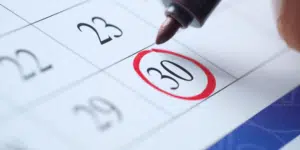It may seem hard to write on command, but this guide will give you the tools to churn out a fascinating essay with ease.
***
Regardless of how experienced a writer may be, formulating a cohesive idea is mentally and, at times, emotionally demanding.
Still, teachers ask students to tackle the difficult task of writing in the midst of juggling assignments from other classes, extracurricular activities, and relationships that take time, effort, and attention to maintain.
So, how can you make the writing process less stressful and more productive? Following these seven steps will surely help.
1. Be engaged beforehand.
Here’s an insider tip: Teachers design units by first coming up with the learning goals they want students to achieve, and later figuring out how they will assess those goals at the end of the unit. In English classes, more often than not, the assessment will take the shape of an essay. So, every class period, discussion, and homework assignment is created with the intention of providing fuel for your final assignment.
What does this mean for you, the student? By being engaged during class, taking notes, and completing homework, you’re gathering the necessary building blocks to succeed when the essay prompt is eventually handed out.
2. Read the prompt carefully.
A good writer knows her project or the goals for her written work. Whether it is a short story for a creative writing class or a literary analysis of “Madame Bovary,” each writing assignment has an objective. In order to fully realize what your teacher is asking you to do, read the prompt looking for key questions or issues to address. If something is unclear or confusing, ask for clarification. Be sure you know what it is you’re asked to do before you start.
3. Organize yourself.
Often, students will receive an assignment, sit at the computer, and begin to write. Many of these students then find themselves stuck, unable to move forward because, frankly, they don’t know what it is they want to say.
Before committing to the keyboard, prepare yourself. This may take the form of an outline or a group of key quotes you plan to analyze. Regardless of how you decide to plan ahead of writing, it’s important that you do. This way, you’ll have a general sense of where you’re going and how to get there.
4. Don’t edit yourself before you’ve started.
Getting your essay off the ground can be the most stressful step in the writing process. Students feel overwhelmed by the pressure to choose the right first line, the perfect word, an attractive title — all before the essay takes shape.
Your first draft should be treated as such: a first draft. Much of what you put down will change, and this is a good thing. The perfect opener and that word that was on the tip of your tongue will come later. Keep this in mind as you sit down to begin your essay. Doing so will relieve the stress of formulating those first words.
5. Refrain from using a thesaurus.
The term “Rogeting,” first coined by Chris Sadler, a professor of business at Middlesex University in the U.K., refers to the practice of covering up plagiarism by utilizing Microsoft Word’s thesaurus feature. Rebecca Schuman of Slate Magazine expands upon this definition, adding to it the misuse of words when using websites like thesaurus.com. No matter how you define it, “Rogeting” is a simple way to make yourself misunderstood.
Believe it or not, teachers want to hear what you have to say, and we want to hear it in a way that sounds like you. Don’t try to sound like someone else, or attempt to “sound smart” by using words you wouldn’t normally use. Your existing vocabulary got you this far, so work with it.
6. Answer the question “So what?”
When teachers ask students to write an essay, we are asking you to formulate an argument — an idea worth exploring. Oftentimes, however, students focus on descriptions or summaries of the text rather than expressing critical thought.
To take your work beyond summary, ask yourself if you’re answering the question “So what?” Why would someone want to read your essay? Who cares about the information presented? Why is this information important for us to understand? Are there ideas that are contrary to yours? If so, what are they?
Remember, your audience has already read the text. We want to know what you have to say about it.
7. Utilize your teacher’s time.
The single most useful tool any student writer can wield during the writing process is the one-on-one conference with his or her teacher. However, since class sizes are continuing to grow, doing this during school hours is becoming increasingly difficult. If you’re struggling with an assignment, or even if you feel like you knocked it out of the park, sitting with your teacher will provide you with the time to have your questions answered and concerns addressed. This type of focused conference will leave you with a plan to revise and the confidence to tackle the next step.







